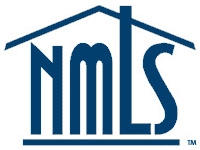Refinancing vs. HELOC: Accessing Your Home Equity
The increasing need for homeowners to access their home equity for large expenses, debt consolidation, or home improvements has brought the concepts of refinancing and Home Equity Lines of Credit (HELOC) into sharper focus. Choosing the right financial strategy is crucial based on individual needs and circumstances.
Overview of HELOC:
A HELOC is essentially a second mortgage that provides a line of credit based on your home equity, with a separate repayment schedule from your primary mortgage. It operates similarly to a credit card, offering a maximum spending limit while charging interest only on the amount utilized during the draw period. HELOCs typically come with a variable interest rate, influenced by the U.S. prime rate, and they usually incur small or no closing costs.
Overview of Cash-Out Refinance:
A cash-out refinance involves replacing your existing mortgage with a new one under different terms, including a new interest rate and monthly payment. The significant benefit here is receiving a lump sum at the close of the refinancing process. After paying off the existing mortgage, the remaining funds are available for you to use as needed. You can choose between fixed-rate or adjustable-rate mortgage options, but bear in mind that closing costs for a cash-out refinance are generally similar to those of the original mortgage.
When comparing a cash-out refinance and a HELOC, it’s important to understand the key differences. A HELOC offers flexibility with its line of credit structure and typically lower or nonexistent closing costs. However, it comes with a variable interest rate, which can be less predictable. On the other hand, a cash-out refinance provides a lump sum and can promote stable, fixed-rate payments, though it comes with higher closing costs similar to those of a new mortgage.
Choosing the right option depends on your immediate and long-term financial goals. Consider your overall financial health and what you need the funds for before making a decision. Both methods offer significant benefits, but their suitability varies from one financial situation to another. If you have any questions or need guidance, reach out to professionals who can help assess your financial stability and plans to make an informed decision that aligns with your goals.














